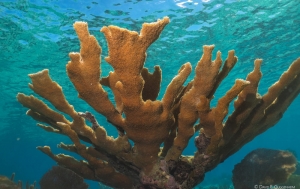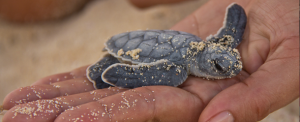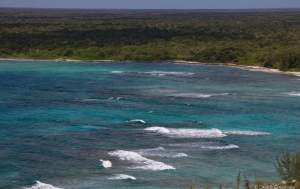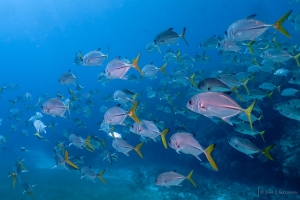A Race to Save Coral Reefs
Ocean Doctor is a 501(c)(3) nonprofit organization based in Washington, DC, established in 2012 dedicated to protecting and restoring our oceans through hands-on conservation, with a focus on coral reef ecosystems.
Our Mission: Advance the conservation of the world’s oceans through scientific research, education and community engagement.
We work to advance economically- and environmentally-sustainable solutions for coastal communities that protect and sustain coral reef ecosystems.
P.O. Box 53090
Washington, DC 20009
www.OceanDoctor.org
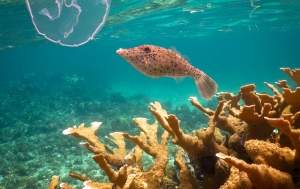
A trunk fish nibbles on a moon jelly over healthy elkhorn coral in the waters of Cuba’s Isle of Youth (Photo: D. Guggenheim)
The past 50 years have seen unprecedented environmental degradation in the Caribbean. A major report documents an average decline of coral cover in the Caribbean of more than 50 percent since 1970. It concludes that without immediate and meaningful action, coral reefs may disappear altogether from the region. Sadly, the situation around the world is virtually the same. Even the protected Great Barrier Reef in Australia experienced a disastrous coral bleaching event in 2016-17 which killed half of its corals.
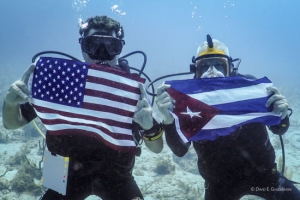
U.S.-Cuba collaboration in marine science and conservation has blossomed during the 18 years we have worked in Cuba. Such collaboration has been credited with helping to support diplomatic efforts to normalize relations.
Ocean Doctor has dedicated the majority of its efforts to saving coral reefs by working in Cuba in collaboration with Cuban scientists for more than 18 years. While much of the rest of the Caribbean’s coral reef ecosystems are dead and dying, Cuba’s coral reefs remain remarkably healthy as do many of its marine and terrestrial ecosystems, owing both to the unique way Cuba has developed, having experienced far less-intensive coastal development compared to other countries in the Caribbean along with strong environmental laws and policies. Cuba’s healthy coral reef ecosystems offer hope, serving as a living laboratory to help guide the protection and restoration of other reefs in the Caribbean.
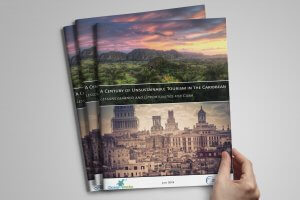
Report: A Century of Unsustainable Travel in the Caribbean: Lessons Learned and Opportunities for Cuba
However, Cuba now faces mounting economic pressures that have pushed many countries in the Caribbean toward mass tourism, a practice that has led to the widespread destruction of coral reefs. Ocean Doctor and the Center for International Policy released the report, A Century of Unsustainable Travel in the Caribbean: Lessons Learned and Opportunities for Cuba (right) to help provide Cuba with sustainable alternatives to mass tourism.
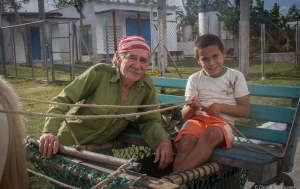
Teaching his grandson to “drive” in the coastal community of Cocodrilo where Ocean Doctor is helping develop sustainable alternatives
We are now working with our Cuban colleagues and Cuba’s coastal communities to develop small-scale alternatives that are both economically and environmentally sustainable, applying principles of environmental economics to ensure that policies consider the true value of natural ecosystems.
We believe that saving some of the last healthy coral reef ecosystems is not only important in its own right, but can help guide restoration efforts throughout the Caribbean and the world.



